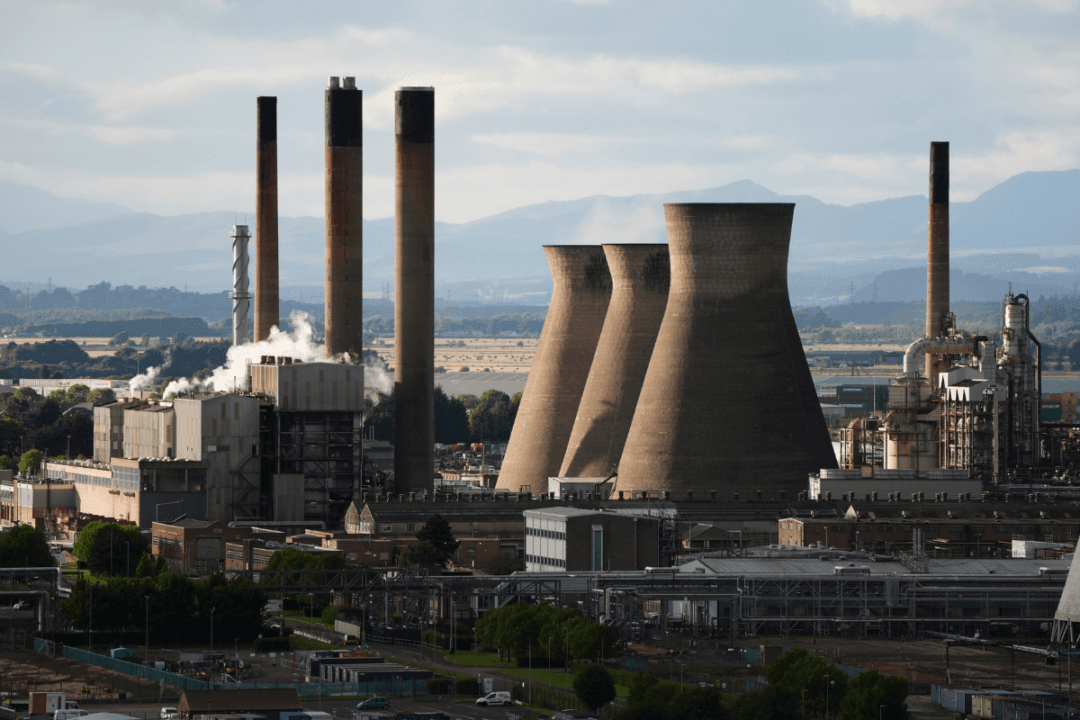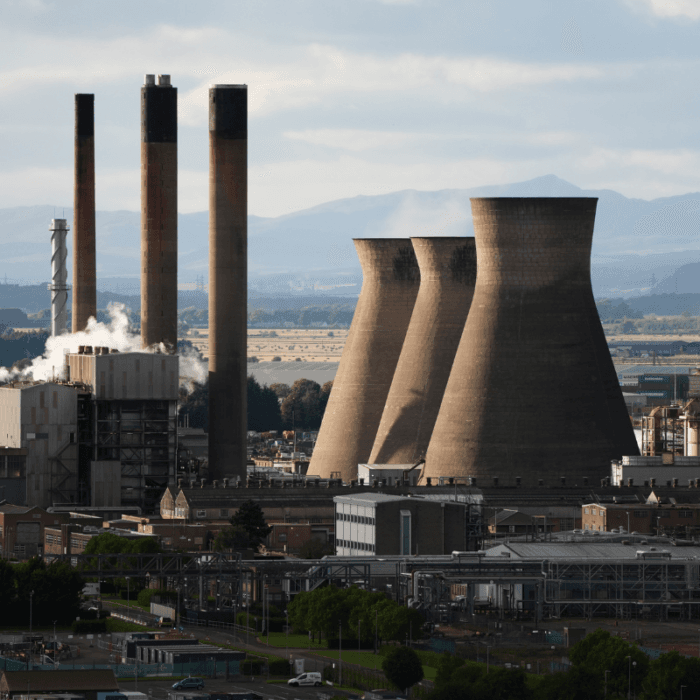The UK and Scottish governments knew for five years that Grangemouth oil refinery was no longer a viable business, representatives from Petroineos told MPs.
Petroineos’s head of legal and external affairs Iain Hardie told members of the Scottish Affairs Committee on Wednesday, “We had a discussion with representatives of the Scottish and UK governments as long as five years ago.”
He said he told them that while the refinery was losing money, Petroineos was committed to adapting the site into a hub for low-carbon manufacturing and as a fuels import hub.
However, he said he had communicated that the regulatory and fiscal framework “was not conducive to investing in low carbon biofuels or other low carbon manufacturing opportunities on site,” and that there was a threat the site could close “absent an intervention by Scottish or UK government.”
“Both governments were given the opportunity and access to data to make an investment decision, and neither government chose to do that,” he said.
No Plans Before July
Hardie said that momentum over discussing the future of Grangemouth, Scotland’s only refinery, picked up after the July 2024 election, when Labour came to government.A Department for Energy Security and Net Zero (DESNZ) spokesperson told The Epoch Times that Petroineos was “clear there was no viable future for the site and did not ask us for financial support to continue refining.”
The spokesperson said that before July, “there was no overall plan for the future of the Grangemouth refinery.”
DESNZ said within weeks, it had worked with the Scottish Government to deliver a £100 million package to support the community and invest in the local workforce, helping them find alternative jobs.
Project Willow
In September, Petroineos announced that the refinery portion of the site would close, transitioning in the short term into a finished fuels import terminal and distribution hub.Petroineos confirmed to the Scottish Affairs Committee that 405 people have been made redundant, receiving 18 months of pay.
The report outlines nine proposals which author EY-Parthenon says will attract private investment. Proposals, which if successful could support 800 jobs, include plastics recycling and the production of sustainable aviation fuel, the latter option being popular with unions.

Petroineos—a joint venture between Ineos and PetroChina—runs the refinery at Grangemouth in Falkirk, Scotland. Ineos also operates petrochemical facilities and the Forties Pipeline System at the site, which brings oil and liquid gas from the North Sea to shore for processing and distribution. Across all operations at Grangemouth, around 2,000 people are employed.
Progress
Scotland’s Deputy First Minister Kate Forbes gave an update on Project Willow, telling Holyrood on Thursday, “I can confirm that initial interest has already been strong, with both Scottish Enterprise and Petroineos confirming that they have received numerous expressions of interest.”Hardie told the committee that Petroineos has been working to ensure a future skilled workforce, talking with nearby Forth Valley College about putting in place programmes to ensure a “flow of young talent that can come and work at Grangemouth, be it in a biorefinery, a green plastics plant, or in a hydrogen facility.”
“We’re agnostic as to what the technology is. We just want to see good jobs at Grangemouth,” he said.

Unite the union told The Epoch Times that both governments “need to act rapidly to protect skilled well-paid employment.”
They added, “There are projects like SAF production which can be swiftly enacted to protect jobs and those opportunities must not be lost.”
‘Cannot Compete’ With Newer Refineries
Grangemouth refinery is the oldest of the UK’s six refineries and is the second-oldest in Europe.Hardie told the Scottish Affairs Committee that Grangemouth is a bottom quartile performing refinery in North West Europe and has “significant energy inefficiencies.”
He said that owing to its age and configuration, it had high running costs and was losing $500,000 a day, all of which informed the viability of the refinery’s future.
“We simply cannot complete with the newer refineries coming on stream in the Middle East, Asia, and Africa,” he said.
He also cited the declining market for liquid fuels and the impending ban on the sale of new internal combustion engine vehicles in 2030 as also impacting the future of the site.
“Against that backdrop, it’s perhaps not unsurprising that a refinery that manufactures petrol and diesel will struggle, and I think that is central to the underlying rationale for refinery closure,” Hardie said.
The Scottish Government disagrees with Petroineos’s decision to cease works at the site. A spokesman told The Epoch Times that ministers had been clear that “refining at Grangemouth should continue, that the closure is premature and that it is detrimental to Scotland’s transition to net zero.”
The spokesman said that it continues to press Westminster to explore all avenues in securing the site’s future “as interventions of this magnitude would require action from the UK government.”
The Scottish Government is investing £87 million in Grangemouth, including £25 million to expedite Project Willow proposals, the spokesman said.
The Conservative Party, Scottish Labour, and the Scottish Conservatives did not respond to requests for comment from The Epoch Times.







